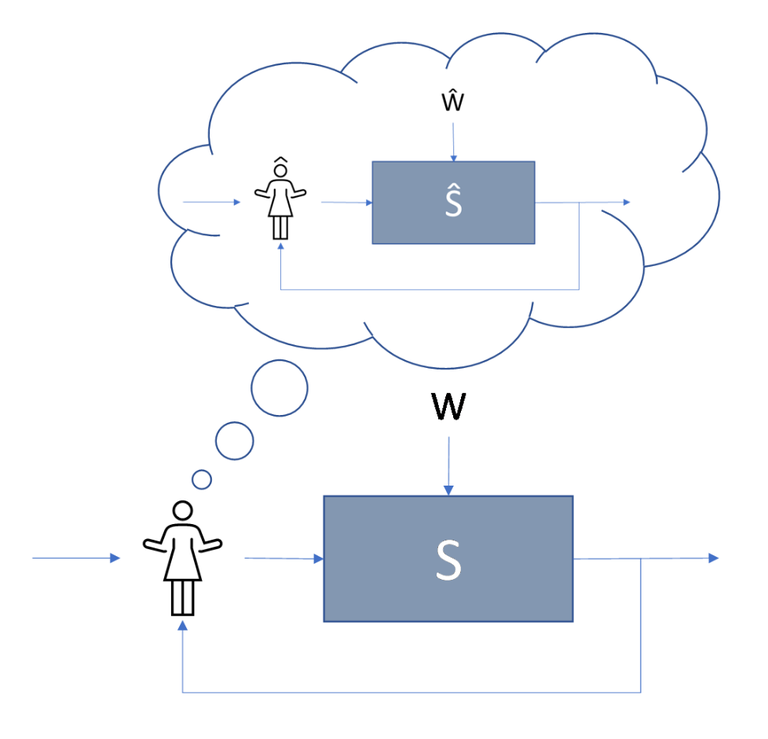Control Concepts for Managerial Decision Making
Consider the illustration below, which outlines how human decision making can be considered a model-based feedback control problem.

[Source: T. Samad, “Control Systems — Concepts and Insights for Managerial Decision Making,” Proc. IEEE 10thInternational Conference on Intelligent Systems, Varna, Bulgaria, August 2020]
The models in this case are mental, not mathematical. We are used to thinking of control as a mathematically grounded discipline, and of course it is one, but at the same time control is also a synthesis of concepts and principles whose application isn’t contingent on formal models being available. In human decision making, the models are mental models. But ideas of process-model mismatch, feedback-cum-feedforward policies, robustness to disturbances, the distinction between outputs and states, the impact of time lags and delays, system identification and adaptation, and many others can be qualitatively applied.
As outputs, task force activities are expected to include the preparation of relevant papers, organization of sessions and workshops at control and technology management conferences, and development of training materials for practitioners.
Task Force Chair: Tariq Samad, Technological Leadership Institute, University of Minnesota, tsamad(at)umn.edu
Task Force Members:
- Danny Abramovitch
- Leo Chiang
- Francesco Cuzzola
- Lane Desborough
- Benny Grosman
- Oleg Gusikhin
- Esko Juuso
- Zdzislaw Kowalczuk
- Michael Lees
- Iven Mareels
- Bhagyesh Patil
- Stefan Pickl
- Russ Rhinehart
- Daniel Rivera
- Benjamin Sawicki
- Bill Tubbs

